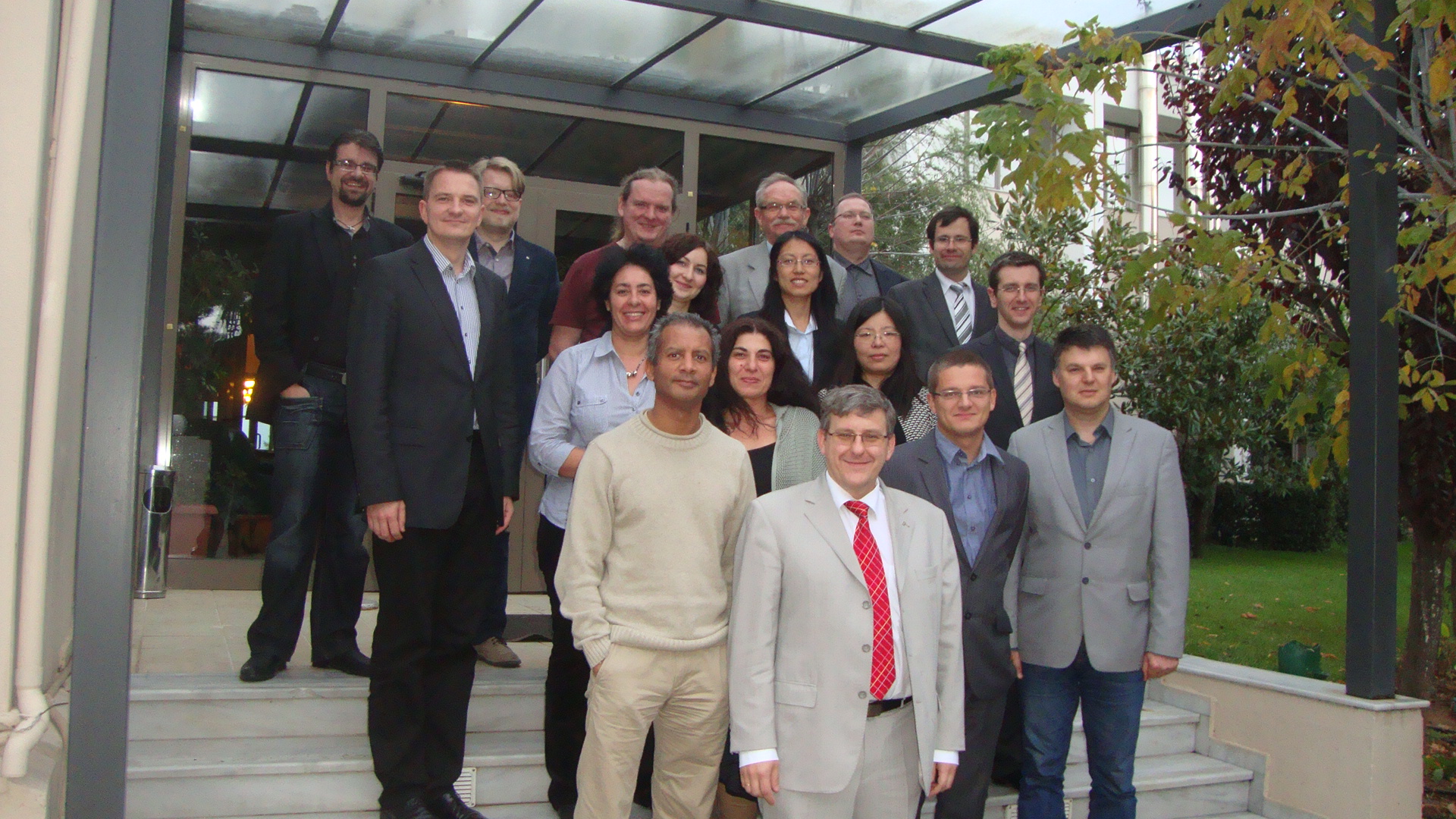
The CARRE project (Personalized patient empowerment and shared decision support for CARdioREnal disease and comorbidities) kicked off last week, on November 14, 2013.
The CARRE project is expected to reinforce the cardiorenal patients’ understanding of the disease and the complex interdependencies of existing or projected comorbidities, supporting personalized treatment stratification, monitoring alerts, education and shared informed decision making. Through these outcomes, CARRE strengthens the EU resolution to put the chronic patient at the center.
The CARRE Team
The CARRE consortium consists of 6 partners from 4 countries (Greece, United Kingdom, Lithuania and Poland) and is coordinated by the Democritus University of Thrace in Alexandroupoli, Greece. The project is driven by two partners from the medical domain, namely the Democritus University of Thrace and the Vilnius University Hospital Santariškių Klinikos (LT), with a clear long experience in medical research in cardiorenal disease and comorbidities as well as with a long record of developing and deploying successful informatics interventions in the real healthcare setting. The core semantic model and interlinking is performed by The Open University (UK) a leading expert in semantic technologies, while the University of Bedfordshire (UK) undertakes the work on visual analytics and cloud computing – both partners also contribute their long experience in semantic information extraction from unstructured data sources and web service oriented architectures.
CARRE Research and Technology
The core of CARRE effort lies in semantic interlinking of three types of data (a) medical ground knowledge (b) up-to-date medical evidence and (c) personal patient data in order to create a personalized model of the disease and comorbidities progression pathways and trajectories. Visual presentations of this personalized model (against ground knowledge and against statistical views of ‘similar’ patient groups) will form the basis for patient empowerment services that will target understanding of comorbidities in the personal setting. Finally, the personalized model of comorbidities will be used for shared decision support services targeting personalized education, complex risk calculation for disease progression and comorbidity trajectories, alerts for adverse events of multiple co-existing treatments and personalized planning for monitoring. The overall research aim of CARRE project is to show the potential of semantic interlinking of heterogeneous data to construct dynamic personalized models of complex comorbid medical conditions with disease progression pathways and comorbidity trajectories. Also, to show that visual analytics based on such models can support patient understanding of personal complex conditions (projected against ground knowledge and statistical views of similar patient population) and be the basis for shared decision support services for the management of comorbidities.
Project Kick-off
The project’s kick-off meeting was hosted by the Democritus University of Thrace in Alexandroupoli in Greece. There were overall 20 participants representing all partners. The discussions started with a brief presentation of each partner and their experience related to the project.
The primary goal of the meeting was to create a common understanding and establish a common background among the different disciplines involved in the project. Thus, half of the meeting was devoted to set the scientific baseline of all disciplines involved. Each partner presented an overview of the state of the art pertaining to their expertise and the project’s envisaged advances. The domains covered were:
- current medical evidence on cardiorenal disease and comorbidities;
- personal medical sensors;
- semantic technologies to transform data into knowledge;
- visual analytics; and
- decision support systems.
A good part of the discussion was about security and privacy issues. Also, the discussion focused on the quality of dissemination, reviews, exploitation and the value to collaborate with other projects. The second goal of the meeting was to refine the work plan, especially for the activities of the 1st year. Thus, we discussed the work in all work packages and identified preliminary working teams. Identifying risks and talking about their minimization and possible mitigation was also part of this discussion. Last, but not least, the team got to know each other during relaxed dinner getaways in the famous for its local delicacies city of Alexandroupoli.
Author: Eleni Kaldoudi, CARRE Coordinator, DUTH
Date: 18 November 2013






